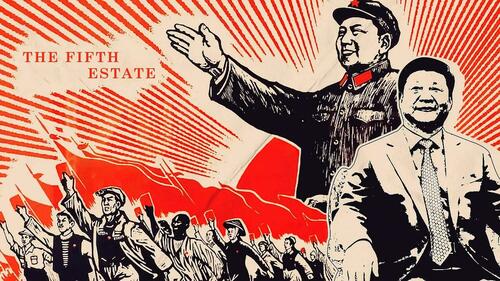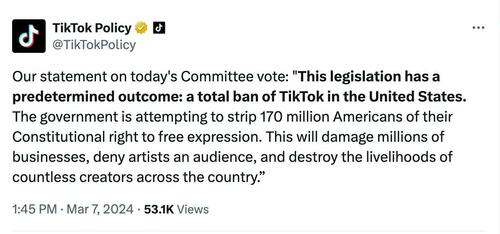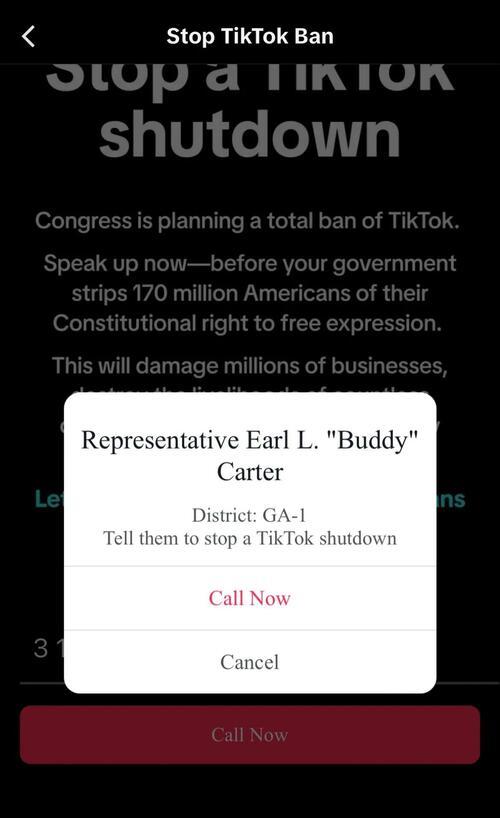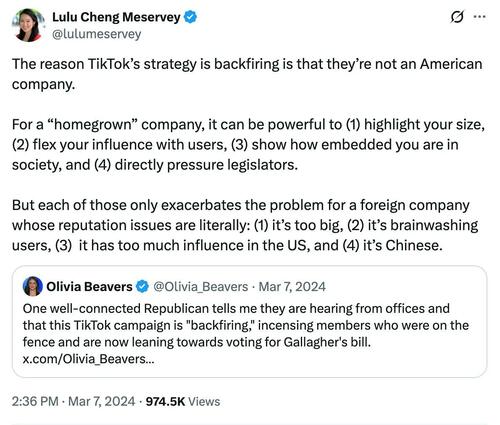The Ghost In The Machine
Authored by Nick Trimmer via The Fifth Estate,
The Chinese Communist Party has a long, proud history of spycraft and theft [ZH: And let's be honest, every advanced nation does this - but read on...].
They hack U.S. defense contractors to steal technology that is then crudely reconstructed into 5th-generation fighter jets that couldn’t outrun a decommissioned Concorde and warships whose only capabilities are 1.) combustion and 2.) floating (optional).
They honeypot many of America’s least fuckable local politicians.
They lie their way into protected facilities and strip their targets of technology transfer limb from limb.
If that wasn’t enough, they also force all foreign-owned companies conducting business in China to hire Chinese Communist Party representatives into their organizations. The explicit purpose of these party-sponsored scarecrows is to monitor that company’s compliance with CCP orthodoxy… And, of course, for spying and stealing.
So, when U.S. officials began questioning whether a Chinese-owned social media app might pose a threat to national security, you could say there was precedent for their concern:
Then early last year, seemingly out of nowhere, things got very confrontational, very quickly.
In early March of 2024, the U.S. House Energy and Commerce Committee voted 50-0 to advance a bill that would force ByteDance to divest from TikTok US, or face a nationwide ban.
This caught everyone off guard: The American public, the American Congress, the President (probably), and most of all TikTok.
In response, TikTok’s PR team immediately went into DEFCON 1, crafting a new comms strategy before the bill could hit the House floor for an official vote. Their message was simple:
Congress is attempting to ban TikTok.
These two words skillfully stripped the entire issue of its nuance and provided a one-liner to be parroted by politicians, pundits, advocates, and ill-informed American teenagers alike.
This was not an attempt to lobby the members of Congress to strike down the bill. It was an attempt to anchor the general public’s perception of what Congress was attempting to do.
And the public did not disappoint.
Soon after, over 100 million Americans opened the TikTok app to see a frightening banner across the home screen: “Stop TikTok Ban” with a message that strongly encouraged users to call their local congresspeople and voice their opposition to the bill.
But that’s not all.
Clearly missing the irony of the situation, TikTok’s team had retrieved the location data of every user and matched it with their Congressional District. At the bottom of this urgent message was a big red button that dialed out to the corresponding congressperson.
Over the course of several days, Congressional staffers had the pleasure of answering thousands of calls from outraged constituents demanding answers to questions such as:
“Why does the government want to ban TikTok?”
“How can you do this??”
“What’s a Congressman?” (not kidding)
To TikTok’s credit, this grievous escalation would have been much more effective were its most passionate supporters not:
Overwhelmingly young (minors)
Ill-informed
Losers
There was pleading, there were death threats, and a whole lot of pre-pubescent panic.
When the bill passed by a 352-65 landslide in Congress, it only heightened the urgency amongst TikTok leadership.
That’s when the overseas PR team unleashed a much more aggressive comms strategy.
HOW TO GASLIGHT A NATIONIn their crusade against America’s legislative gerontocracy, TikTok took a page (stole, probably) from the Crisis PR textbook with a 3-pronged approach:
Gaslight — Deflect the claims made by your accusers.
Gatekeep — Create new language to describe the issue and reposition it in your favor.
Girlboss — Accuse your opponent of something entirely different to shift public opinion against them.
Gaslighting
From the beginning, the bill’s sponsors made it clear that this piece of legislation was drafted to promote American national security and economic sovereignty. The initial bill would force ByteDance to divest from TikTok US. If the parent company didn’t divest within 6 months, only then would the app be banned.
TikTok’s PR team did an incredible job of immediately deflecting the accusations by shifting the conversation away from “national security”, “economics”, and “divestiture”.
The purpose is to strip any nuance from the debate and reduce it to individual talking points: deflect the points that aren’t useful, then take what remains, twist it in your favor, and make that the focus of your argument.
Gatekeeping
Then, TikTok developed several carefully crafted taglines to reinterpret reality according to their own narrative.
Those taglines:
“170 million Americans love TikTok and every single one of us should care about our First Amendment rights.”
“Congress is planning a total ban of TikTok.”
Within these taglines are several key phrases that re-anchor the general public’s understanding of the issue:
Re-inventing the language around a conflict allows you to set your own terms for the conversation that follows. For example:
The key to properly “gatekeeping” in this context is to use your new terminology over, and over, and over again until it becomes the language that everyone uses to participate in the discussion.
Repetition is crucial.
Girlbossing
And that’s exactly what TikTok did. The company's PR team-turned-CCP-sock-puppet proved itself to be an expert communicator. They immediately changed the conversation from:
“Does ByteDance’s ownership of TikTok pose a threat to U.S. national security?” (it does)
to:
“Why is the U.S. Government attempting to stifle 7 million small businesses and suppress free speech for 170 million Americans?”
It was dragged into the realm of politics and culture, right where they wanted it (if it’s an argument about politics and culture, it becomes a matter of opinion, not law).
OBFUSCATION AT ANY COSTAt the time, many veteran PR professionals argued that this strategy would prove to be a destructive to TikTok’s brand and its cause. Lulu Chang Meservey pointed out that a China-based company willing to exert its influence on the American public and pressure regulators would likely face backlash.
Yet, over a year later, the issue has yet to be resolved. Why?
You have to give credit where credit is due — TikTok employed a crisis comms strategy so audacious that its mere suggestion in a modern American boardroom would result in the entire PR team being ceremoniously executed. Such openly hostile lying, rage-baiting, and propagandizing hasn’t occurred at this scale since the Eisenhower administration.
And, although this strategy wasn’t an overwhelming success, it didn’t backfire the way that many of us expected.
The Protecting Americans from Foreign Adversary Controlled Applications Act (PAFACA) was passed by Congress and signed into law in April of 2024. ByteDance was given an initial deadline of January 19, 2025 to divest from TikTok US. That deadline has already been postponed twice.
Chess Grandmaster and Soviet refugee Garry Kasparov once said, “The point of modern propaganda isn't only to misinform or push an agenda. It is to exhaust your critical thinking, to annihilate truth.”
TikTok didn’t need to convince Congress of its position. The company needed to make enforcement as politically costly as possible. When faced with possible annihilation, TikTok chose a strategy that obfuscated reality and annihilated the truth.
By that standard, the campaign was an overwhelming success. It delayed a forced sale of the company, radicalized a segment of its userbase against U.S. regulators, and changed the entire conversation around its encroachment on the privacy of American citizens.
As of writing this, TikTok is still very much operational. The new “final” deadline for divestiture is only a few days away on June 19th, 2025. It appears overwhelmingly likely that the Trump administration will push back the deadline once again.
The lesson here is simple. Propaganda is a powerful tool for influencing perception. But, if you can change the topic, you don’t need to change minds.
It’s like that famous quote from the show, Mad Men: “If you don’t like what is being said, change the conversation.”
Stay ungovernable,
Nick
Loading...




